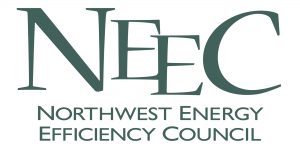A number of items of interest were featured at a recent Energy Trust of Oregon Conservation Advisory Committee (CAC). CAC members were provided an overview of a new Trust activity – Refrigeration Operator Coaching (ROC). ROC is a training program for the operations staff in industrial facilities with significant refrigeration energy use. This project, administered by NEEC member Cascade Energy, qualifies the industrial customer participant and then provides them knowledge, support, and tools through a series of five half-day workshops and monthly site visits. The focus is on a series of low or no cost improvements that will net real energy savings at the meter. The first workshop of this new innovative approach occurred in May. This represents one more step forward in progress toward creating program offerings that focus on the importance of building/process operators on energy use.
The Energy Trust is also proposing some clean up to its long-standing policy document on cost effectiveness calculations. First written in 2002, much has occurred in the last nine years to warrant this re-freshing. Many of the proposed edits simply reflect current practice by the Trust for cost effectiveness. There are a couple of important items to note however. First, the Trust is proposing the federal program project incentives be excluded from cost effectiveness calculations (much like federal and state tax credits are currently treated). This idea has yet to be sanctioned by the Oregon PUC and could have a big effect on the Clean Energy Works Oregon (CEWO) program which is of course federal funded through the US DOE EECBG grant. The ETO is also proposing to do away with language in its policy requiring a “consumer test” of cost effectiveness (WUTC, please take note of this!).
Possibly the greatest issue of significance has surfaced in a staff paper to the Energy Trust’s Board of Directors on that organization’s conservation efforts in the 2011 – 2013 period. The staff paper reports that despite potential volatility in natural gas prices (as much down as up), natural gas conservation acquisition targets seem accomplishable. However, due to in large part to aggressive increases in codes and standards (as well as some market saturation), the staff is concerned that electrical energy savings targets may be unreachable during the period. Up to 13 aMW of conservation may well be “off the table” because of new codes and standards and/or uncertain market conditions. While some of this loss can be offset through new programs, the staff is sounding an early warning that aggressive electrical conservation goals may not be reachable. This is an issue that is likely not unique to the ETO – though they may be one of the first NW organization’s to feel its effects. It clearly raises the importance of clarifying how behavioral based energy efficiency efforts are quantified and approved for savings as well as how well more aggressive energy codes actually translate to real savings in newly constructed and renovated buildings. Should utility/third party administrators receive credit for supporting energy code implementation as a means to ensure the realization of savings? Click HERE to read the ETO staff paper on measure eligibility.
